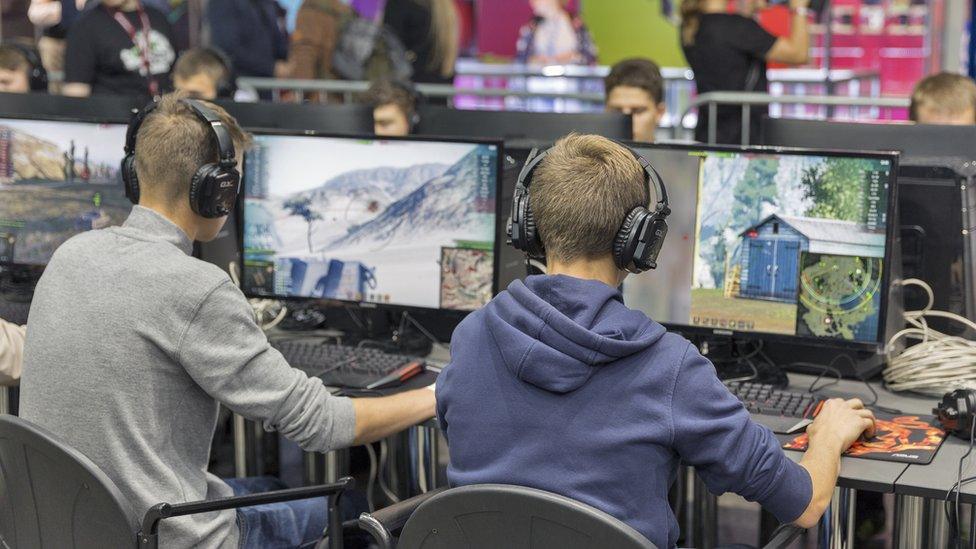Video games could boost university skills, study finds
- Published

Playing video games could help young people be more successful at university, according to a new study.
A University of Glasgow trial, external found gaming improved communication skills, resourcefulness and adaptability.
Researchers suggest this could impact on education success, with students seeing increases in attributes which help employability.
Lecturer Matthew Barr said many video games encouraged "critical thinking and reflective learning".
These are central to "graduate attributes", which are seen as desirable by employers hiring people after university.
"The findings suggest that such game-based learning interventions have a role to play in higher education", Mr Barr said.
"Graduate attributes are those generic skills such as problem-solving, communication, resourcefulness or adaptability which are considered desirable in graduates, particularly where employability is concerned.
"Modern video games often require players to be adaptable and resourceful, and finding multiple ways of accomplishing a task. The way games are designed often encourages critical thinking and reflective learning, commonly cited as desirable attributes in graduates. "
Skills improvement
The eight-week study assessed undergraduate students randomly assigned to either an intervention or a control group.
They were tested on measures of adaptability, resourcefulness and communication skills.
The intervention group played specified video games, showing improvements in these areas compared with the control group over 14 hours of play.
"My research is perhaps what every parent may or, in the case of some, may not like to hear," Mr Barr continued.
"This work demonstrates that playing commercial video games can have a positive effect on communication ability, adaptability and resourcefulness in adult learners, suggesting that video games may have a role to play in higher education."
The games used in the study included Borderlands 2, Minecraft, Portal 2, Lara Croft and the Guardian of Light, and World of Warcraft III: Reign of Chaos.
The study operated on a drop-in basis, with students able to come and play the specified games on certain days.